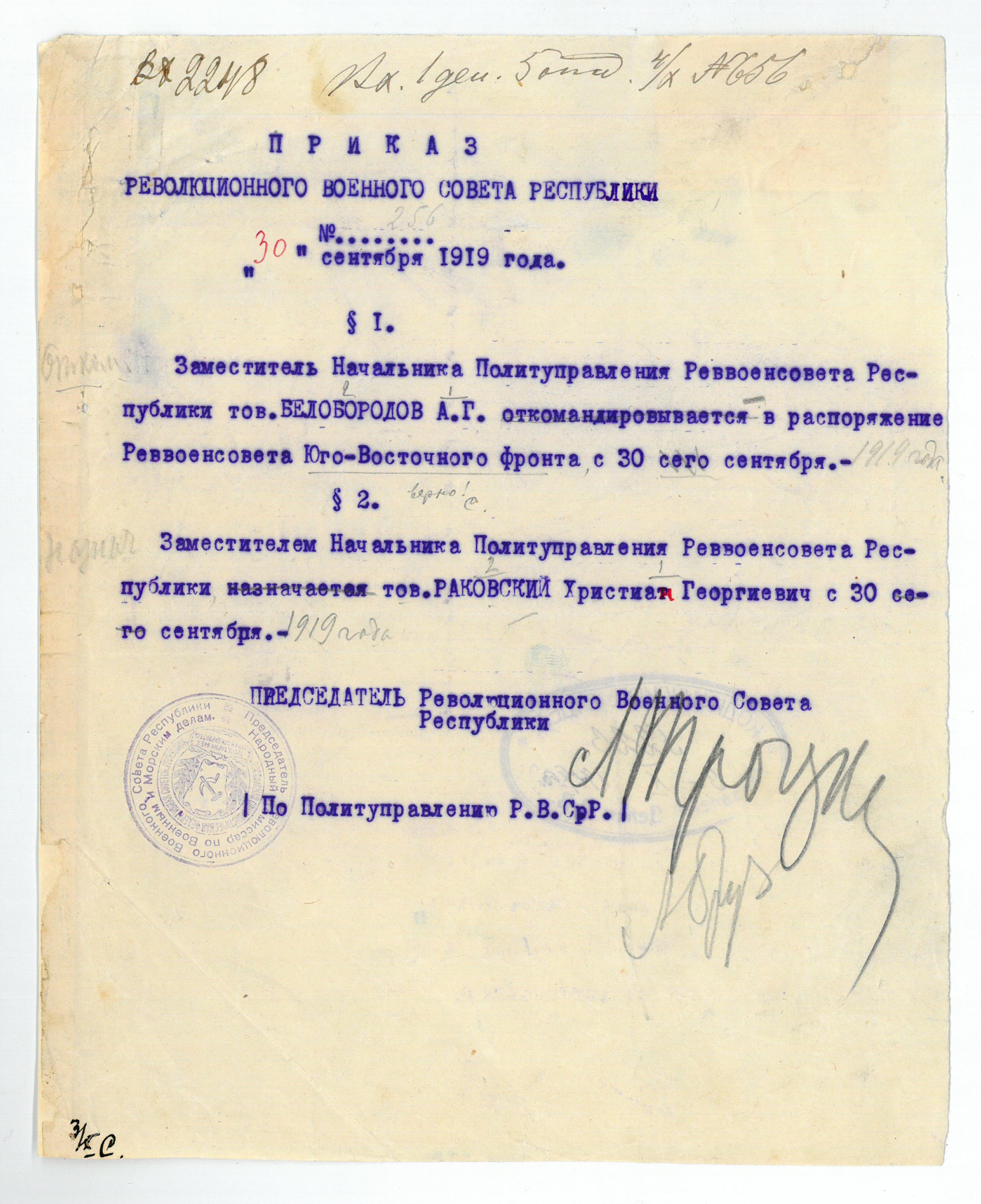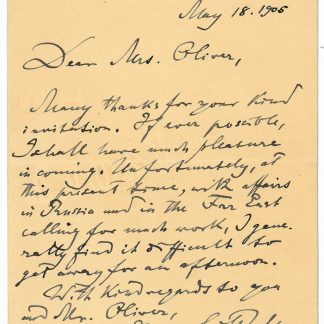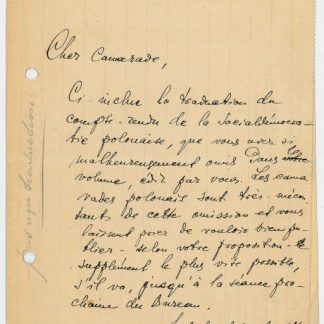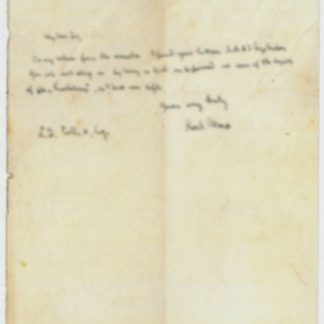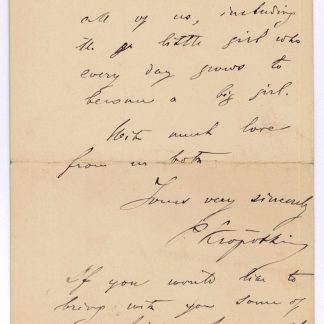Leon Trotsky and his allies during the Russian Civil War
Typed document signed.
Small 4to. 1 p. Signed in pencil. In Russian.
€ 7,500.00
Important military document concerning Alexander Beloborodov and Christian Rakovsky. In his function as Commander of the Red Army, Trotsky detaches Belobodorov to the newly created Southeastern Front, where he would become a member of the Revolutionary Military Council of the 9th Army, and names Rakovsky deputy chairman of the Red Army's Political Directorate.
Trotsky had resumed control of the Red Army in late July 1919, following a brief demotion and detachment to the Southern Front due to intrigues of his principal internal adversary Joseph Stalin. Beloborodov and Rakovsky were close allies of Trotsky's, and he undoubtedly hoped to strengthen his position within the Red Army with their appointments.
Alexander Beloborodov (1891-1938) is best known as one of the principal officers in charge of the execution of the Imperial family. The Bulgarian-born Christian Rakovsky (1873-1941) led the Ukranian SSR government from 1919 until 1923, when he was removed from the Ukranian government due to his opposition to Stalin. Rakovsky was sent on a diplomatic mission to London and would serve as Soviet ambassador until 1927, when he returned to Moscow and was subsequently exiled within Russia for several years. Both Belobodorov and Rakovsky were leading members of the Trotskyist opposition to Stalin from 1923 and were openly persecuted from 1927. Belobodorov briefly housed Trotsky following his eviction from the Kremlin in 1927, but was expelled from the Communist Party and exiled to Siberia later that year. Despite recanting his opposition to Stalin and rehabilitation in 1930, Belobodorov was arrested in 1936, at the beginning of the Great Purge, and was executed in 1938. Rakovsky shared his fate: he was convicted in the so-called Trial of the Twenty-One, the last of three public Moscow trials against prominent Bolsheviks in March 1938, and executed three years later.
Co-signed by an unidentified official and stamped recto and verso. With administrative annotations. Old reinforcements to the left and upper margins.

